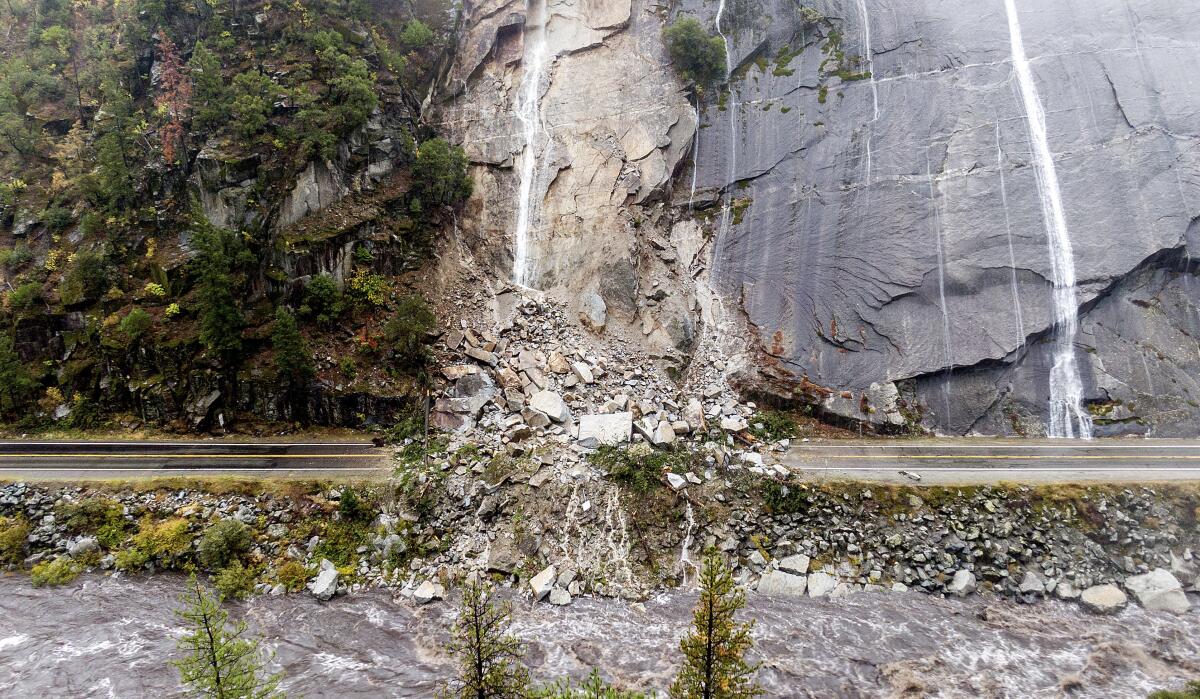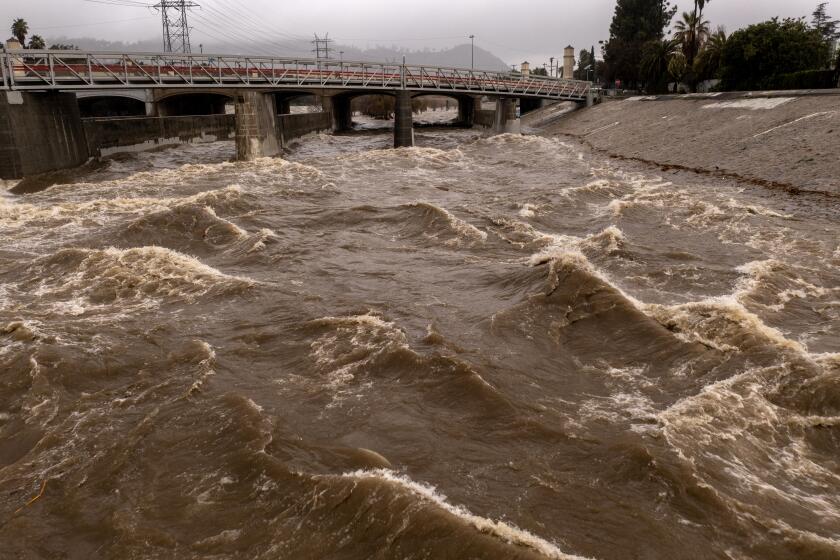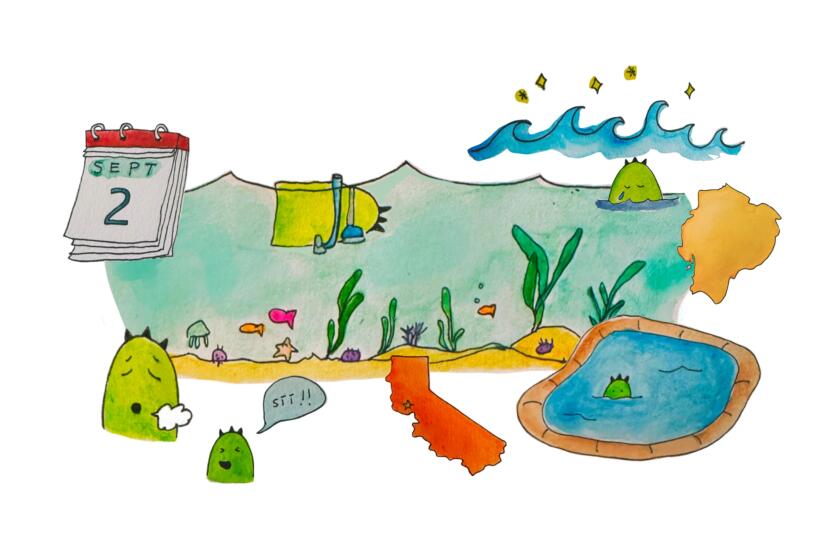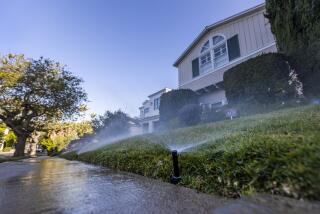As Californians we inherit a dramatic, maybe doomed, relationship with water

- Share via
Californians are used to seeing end-times headlines about our dwindling water supply. A recent one reported that Lake Mead, the largest reservoir in the U.S., could be a “dead pool” in two years. It’s a frightening prospect even with our recent slate of winter storms. While those add to our shrinking reservoirs, groundwater and snowpack, it won’t be enough to solve our drought problem — and it comes with disaster.
As a fourth-generation Californian, I’ve learned that worrying over water is a generational inheritance. My great-grandmother, Ora Goodman, used to say: “There isn’t enough water for all these people.” This was her obsession. Over the decades, with more and more people inhabiting the state, I’ve picked up her mantle of worry — often thinking there won’t be enough water for all these people. Lake Mead’s dismal prospects do not help my anxiety.
The family story, and the origin of Ora’s water obsession, starts when my great-grandparents were homesteading a piece of land near Chittenden in Santa Cruz County. They’d come down from Modoc County around 1915. At the time they had two young boys, one being my grandfather. The land they were on didn’t have a well, so using two dray horses and a cart loaded with wooden barrels, Gramma Ora went to a local pump to get water. Our family believes that this difficult daily chore changed her for life, leading to her constant worry that the water supply would eventually run out.
We’re in a drought, rain is pouring on much of California, and Los Angeles is sending much of that water into the ocean. Can we do anything differently?
I was lucky enough to know my great-grandparents through my mid-teens. By the 1960s, they had relocated the family to Santa Maria. Unlike in Chittenden, the house they moved to had actual plumbing. But Gramma Ora never gave up her frugal water habits. I have vivid memories of my mother and my aunts arguing with her because she refused to let dirty dishwater go down the drain. Often, she tried to wash several days of dishes in the same water. She also bailed used water from the sink and poured it over the fence into her vegetable garden. Using the toilet came with its own set of Ora’s rules, including not flushing each time.
Even so, growing up in California, water simultaneously felt bountiful. Swimming was an inexpensive distraction for my sister and me, one my beleaguered single mother frequently took advantage of. I’ve swum in Lakes Shasta and Tahoe, the San Joaquin, American and Sacramento rivers, plus the Kern and Merced. I even had an up close and personal experience with the Colorado River when I spent a week rafting through the Grand Canyon — a trip that ended in Lake Mead.
The rivers, lakes and ocean, not to mention our kitchen taps and garden hoses, may make it appear that water is always there. It can be easy to dismiss the urgency of our drought. But the reality is that our state is stuck with a feast-or-famine relationship with water. Replenishing rains also cause destructive floods. Wet winters can’t fully redeem our dry seasons. This was true even when Gramma Ora worried over water. A lot has changed since her days. In 1966, the state population was less than 19 million. Today’s population? Nearly 40 million.
How will our languishing water supplies affect us? Water isn’t only important for our daily living — drinking, cooking, cleaning, washing and bathing. It’s also vital to our overall well-being, our psyches and spirits.
How water offers calm in a constantly changing world.
Experts are doing their best to find new solutions and to bring the public on board with existing ones. Officials have recommended or imposed limits on outdoor watering, warning that they may have to tighten rules if the situation doesn’t improve. I hope most of us are taking heed. In our household, my husband and I don’t go to the extremes my great-grandmother did, but we do try to conserve as much water as possible. We water our indoor and outdoor plants with leftover cooking water and take timed showers. I recently added a bank to our toilet tank — a plastic pouch full of water that forces the toilet to use less.
But still I wonder, often, will it be enough to make a difference? Are we simply going to keep using our water supplies until there’s none left? I fear that the phrase “dead pool” will become commonplace. Future generations won’t simply inherit water worry; they’ll mourn the relative abundance their ancestors enjoyed. There actually may not be enough water, and my great-grandmother’s bleak prophecy could come true.
Charles G. Thompson is a Glendale-based fiction writer. @cgregthompson
More to Read
A cure for the common opinion
Get thought-provoking perspectives with our weekly newsletter.
You may occasionally receive promotional content from the Los Angeles Times.











